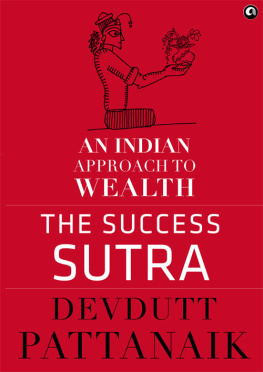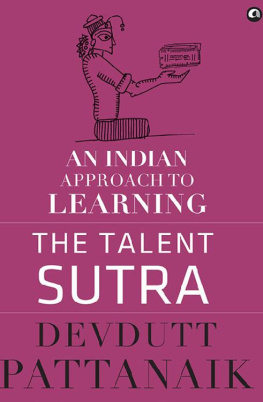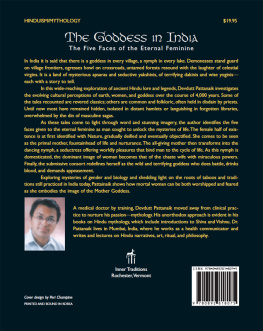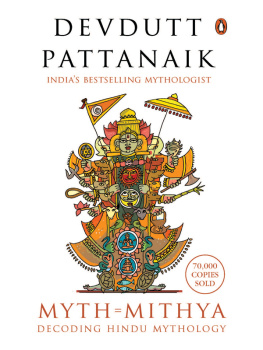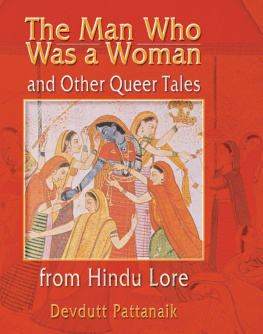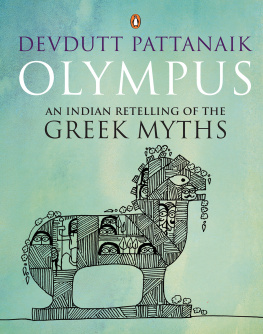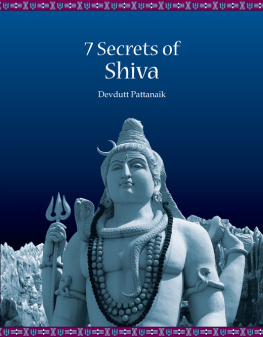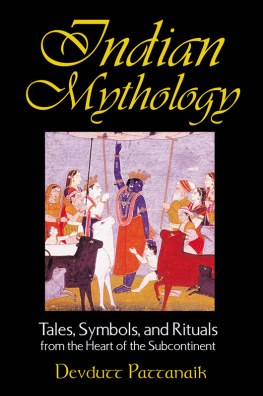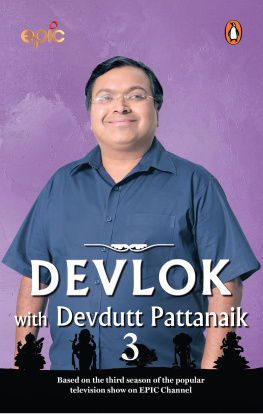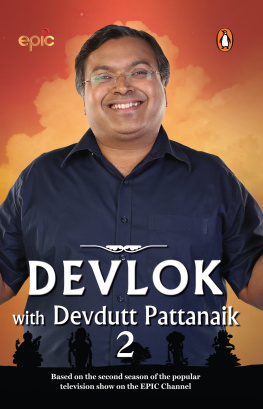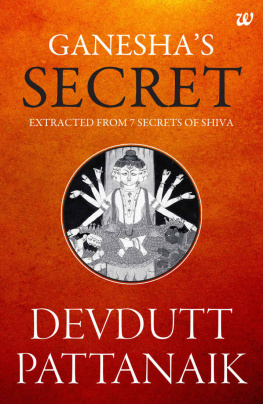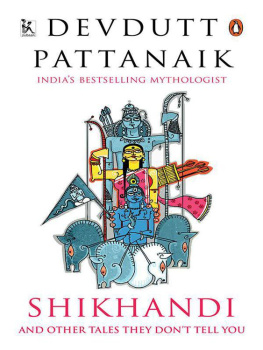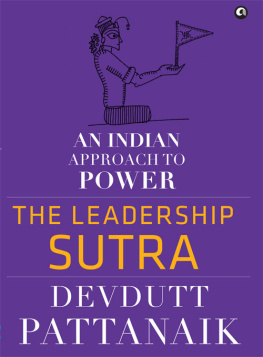Also by Devdutt Pattanaik
Business Sutra: A Very Indian Approach to Management
Jaya: An Illustrated Retelling of the Mahabharata
Sita: An Illustrated Retelling of the Ramayana
Myth=Mithya: A Handbook of Hindu Mythology
Pashu: Animal Tales from Hindi Mythology
Shikhandi: And Other Tales They Dont Tell You
The Pregnant King: A Novel
Shiva to Shankara: Decoding the Phallic Symbol
The Goddess in India: The Five Faces of the Eternal Feminine
ALEPH BOOK COMPANY
An independent publishing firm
promoted by Rupa Publications India
First published in India in 2015 by
Aleph Book Company
7/16 Ansari Road, Daryaganj
New Delhi 110 002
Copyright Devdutt Pattanaik 2015
All rights reserved.
No part of this publication may be reproduced, transmitted, or stored in a retrieval system, in any form or by any means, without permission in writing from Aleph Book Company.
eISBN: 978-93-84067-04-5
This book is sold subject to the condition that it shall not, by way of trade or otherwise, be lent, resold, hired out, or otherwise circulated without the publishers prior consent in any form of binding or cover other than that in which it is published.
CONTENTS
Introduction
There was once a priest who was very poor, there were constant quarrels in his house between his unhappy wife, his hungry children and his helpless parents. He begged the deity of his temple to help. So the deity gave him a pot of gold. The happy priest sold the gold and used the money to repay his debts, bought all the things money could buy, and even made investments to secure his future. But soon after the quarrels started again: between his greedy wife, his ambitious children and his neglected parents. Each one wanted a greater share of the treasure. Annoyed, the priest went to the deity and demanded a solution. Once again the deity gave him a pot of gold. No, I dont want another pot of gold. Give me something that solves the problem truly, cried the priest. Pot of gold! exclaimed the deity, but I never gave you a pot of gold. I gave you the nectar of wisdom. Did you not drink it? Or were you too distracted by the container?
This story illustrates Indian beliefs about wealth and success. Within every fortune (the pot of gold) lies wisdom, an idea to be trusted: a belief that makes success sustainable. These beliefs play a key role in business and management. They determine choices and catalyse the decisions of buyers and sellers, regulators and shareholders, investors and entrepreneurs, employers and employees, vendors and customers. They determine how we do business. This book shows how Indian beliefs, transmitted through ancient stories (also pots of gold), may be used to create a unique approach to success in business and life in general.
Ancient Indians saw business as yagna, the ritual described in the oldest and most revered of Hindu scriptures, the Rig Veda. The yajaman initiates this ritual, makes offerings into agni, the fire burning in the altar, exclaiming svahathis of me I offer, hoping to please his chosen deity or devata who will then give him whatever he desires, exclaiming tathastuso it shall be. Svaha is what the yajaman invests: goods, services and ideas. Tathastu is the return on investment: revenue in the marketplace or salary paid by the employer, or even the services offered by the employee. It all depends on who plays the role of the yajaman, who initiates the yagna. The yagna can operate both downstream, as well as upstream, so the devata can either be the buyer or the seller, the investor or the entrepreneur, the employer or employee, director or doorman.

Business is about generating Lakshmi, the goddess of wealth in Hinduism as well as in Buddhism and Jainism. Conventionally, business starts by articulating the tathastu (target) first, then the plan and resources for executing the svaha (tasks). Skills come later. What matters are the offering, the gestures and the exclamations; in other words, the process. The personality of the yajaman does not matter. His fears do not matter. His feelings do not matter. In fact, he is expected to be a professional, act without emotion. Besides, he is always replaceable, making the yagna more important than the yajaman.
But, according to Vedic scriptures, the yagna had no independent existence outside the yajaman. Business is always about people: of people, by people, for people. Everything hinges on the bhaav of the yajaman towards the devata, the feeling with which he offers the svaha and receives the tathastu. Bhaav also means value. The feeling of the yajaman determines the value he grants to the devata.
The more dependable a yajaman is, the more he is able to attract the devatas, as bees to nectar. The devatas in turn will churn out Lakshmi for him from the ocean of milk that is the marketplace.
Every interaction in business is a yagna, be it between investor and entrepreneur, employer and employee, manager and executive, professional and vendor, seller and buyer. The yagna is the fundamental unit of business, where everything that can satisfy hunger is exchanged. Animals cannot exchange (though some trading and accounting behaviours have been seen in a few species of bats). Exchange is a human innovation that reduces the effort of finding food. It increases the chances of getting fed. It improves the variety of food we get access to. Exchange creates the marketplace, the workplace, even the family. It is the cornerstone of society.
Svaha is food for the devata. Tathastu is food for the yajaman. Unless svaha is given, tathastu cannot be expected. As is svaha, so is tathastu. Ideally, the yajaman wants the devata to give tathastu voluntarily, joyfully, responsibly and unconditionally. When this happens, it is said Lakshmi walks his way.
Today, everywhere we look, there are actions that have resulted in the absence of Lakshmi (poverty), as jungle law (might is right) is favoured over cultural norms (help the helpless). Many valorize Lakshmis rejection through monasticism, and with derisive words like bazaaru and dhanda we equate professionalism and commerce with prostitution. These actions individually and collectively amount to Lakshmi-ninda, or the abuse of wealth. Time then to do Lakshmi-shruti, a re-appreciation of the goddess who nourishes life. Only then will the legendary golden bird of prosperity (sone ki chidiya) return to this rose-apple continent we call India.
The Success Sutra, a work derived from my book on the Indian approach to business and management, Business Sutra, focuses on sutras related to decision-making, the inherent violence of production, the seduction while selling and the churning of the market through forces and counterforces within organizations.

